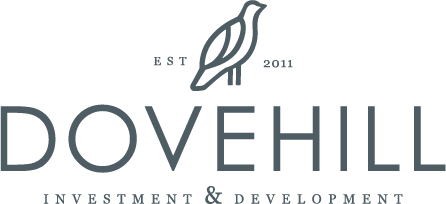Which ones are you in? Are they also through EquityMultiple?
Bear with me. It's a long list.
1) My first ever syndication was with Ashcroft Capital. 30K investment. 2.7B of assets under management. I'm in one of their funds that holds 6 apartment complexes. Joe fairless has an incredible reputation in bigger pockets as a good sponsor. Deal through Ashcroft's private investor website.
Ashcroft Capital focuses on capital preservation while striving to return strong, risk-adjusted cash on cash to investors.

ashcroftcapital.com
2) 230 unit apartment complex in Miami with Lynd Living as sponsor. I put 25k in this. Really experienced sponsor in multiple states with 3B in assets under management. They were initially extremely under performing but the property has turned around now and back on track. I don't know if I would invest with Lynd again however - The initial 1 year of underperformance has me scarred. This was a deal on crowdstreet.

lynd.com
3) 28k in NEMI fund 4. Not as experienced a sponsor since I think they only have some 300-400M of AUM. Sponsor is New Era Companies. This was through crowdstreet. They are building inpatient psych and inpatient rehab buildings and leasing them out. Obviously there's a desperate need for these, so I believe in the space. It's a fund with 6 assets essentially. One of the buildings actually is set to sell in a couple of months, so this portfolio is starting to cash out. Also through crowdstreet.

neweracompanies.com
4) 25k in DC Navy yard area new apartment construction. Another deal through crowdstreet. Sponsor is Foulger Pratt. 5B AUM. 40 year old company and essentially a juggernaut in the Maryland/DC/Virginia area. New construction which finishes end of this year. This building is in Navy yard area of DC which is 10 minutes drive from Amazon's HQ2. I believe in the boom of this area. Interest rates have affected this deal, because their bridge construction loan is currently at 8%, but they are still on track.
Building Communities Real Estate Portfolios Careers Together Invest With us Investors trust our fully-integrated real estate development process to deliver a quality product and substantial returns. We oversee every step of the project from acquisition, development, construction, and asset and...

www.foulgerpratt.com
5) 40k in BAM capital fund 2 (barret asset management). Invested through Realcrowd, but knew about the company through bigger pockets. 5 or 6 Apartment buildings in this fund. Experienced-ish syndicator with ~ 1 B assets under management. Excellent reputation of Ivan barrat on bigger pockets who runs the firm. Multiple years of being one of top growth real estate firms on the fortune 5000 list. This fund is over performing against proforma.

capital.thebamcompanies.com
6) 30k in 200 W Jackson Office Building in Chicago. This is the building next to Sears tower. Nightingale properties is sponsor. 10B in AUM. Sponsor is stellar. Deal was off of crowdstreet. Still very healthy cash flow, but some pressure on the deal because of 3 small tenants that are delinquent. The largest tenant is a fortune 500 company with plenty of $$$.

thenggroup.com
7) 25k in Junction crossing apartments in Fort Worth Tx. Again through crowdstreet. Sponsor is Foulger pratt again.
8) 25k in The Bloc Office building. Sponsor Is Hempel companies. Buildling is essentially next to the great mall of America in Bloomington MN. 1B AUM for sponsor, experienced in the space and local to Minneapolis. Another deal on crowdstreet. Currently performing well.
Hempel Real Estate acquires, develops, and redevelops commercial real estate throughout the Midwest.
hempelcompanies.com
9) 25k in The Julian Apts (400 unit building) in Orlando Fl. Sponsor is the Frankforter group. ~ 600M of AUM. Also was on crowdstreet. However SEVERELY UNDER PERFORMING. I WILL NEVER INVEST WITH THEM AGAIN. EVER. This deal will likely result in some losses - unless the sponsor turns it around. I hope they do. I've mentally written off this investment as a complete loss.

frankfortergroup.com
10) ~50k in ZRP Storage Fund. Fund to acquire around 15-20 self storage assets. 11 acquisitions so far. They have a coinvestment of 50% into the fund themselves which is unheard of. This deal was through realcrowd. It's a 50M dollar fund. The 4 main people at Ziff Cre have 25M of their own money in that 50M fund, the remaining is investors. They are currently over performing.
11) 30k in 3 Apartment buildings in Oklahoma ~ 700 units. Deal from equitymultiple. Not as experienced a sponsor, but the sponsor was literally able to acquire the 700 unit portfolio at a cost basis of 65k per door. You just don't find class B properties 3 miles from a major US university for 65k per door - you just dont. Trident Multifamily is the sponsor. They were decently over performing until one of the tornadoes in oklahoma threw some street light poles into one of the buildings - Insurance will cover, but the insurance has a decent deductible (1M i believe).
Trident is a Multifamily real estate investment firm focused on acquiring and repositioning multifamily properties in select US growth markets.

tridentmultifamily.com
12 & 13) 20k in Van west storage fund I and 15K in Fund II. Van west partners is the sponsor. Deal was through equitymultiple. Currently over performing across both funds. Each fund is acquiring some 15 or so assets each.
VanWest Partners is a real estate investment firm specializing in self-storage, a recession-resistant, low-risk asset class that is open to accredited investors.

www.vanwestpartners.com
14) 15k in an apartment complex in Des Moine IA. Sponsor is FTW investments. Deal was on equitymultiple. Smaller less experienced sponsor but their going in cost basis was great. They are over performing.

ftwinvestmentsllc.com
15) 30k in a Equity Multiple Fund consisting of 28 deals in one fund. They packaged multiple deals into one - it's diversification at it's finest.
16) 25k with Dovehill capital management group - This is for the Double tree hotel in Boca Raton Fl. Deal is over performing. Another crowdstreet deal. Solid company - They have a hotel fund but it has a 1M minimum investment -_-
Established in 2011 and headquartered in Fort Lauderdale, Florida, DoveHill is a vertically integrated hospitality investment and development organization. We have developed a portfolio of urban infill, lifestyle, and premium branded full-service hospitality-focused investments across North America.

www.dovehillcos.com
17) 25k in Finial Industrial fund IV. Industrial space. Multiple assets in fund. Crowdstreet deal. Very recent investment - 3 months ago maybe.

finialgroup.com
18) 25k in Hempel La selle plaza - Wire sent 6 days ago. Still currently fund raising. This is a 30 floor office building that is being purchased for $46M, this building was sold in 2011 for 155 million. The previous buyer was delinquent and unable to pay mortgage - Hempel bought the 86 million dollar loan for 46 million from the bank, became the bank, and in the same transaction, the previous owner is handing over the keys to avoid the foreclosure process, so forfeiting all of their equity. This structure is being acquired at a going in cap rate of 15 or something and a price of $77 per sq/ft (this is a 30 floor Class A skyscraper in Downtown minneapolis).
Hempel is currently fund raising for this. Here is the offering memorandum if you're interested in learning about this:
19) 50k in ODC 3 Texas Apartments. These funds were sent 1 week ago and the deal remains open with 85% of funds raised. 3 Apartments, 1 in Katy Tx, 1 in Stafford Tx, and 1 in Austin. Fixed 3.8% debt for 7 years (unheard of today - but they are assuming previous owners loan) - Price per door of 167k. Disrupt equity and ODC capital are joining hands in this deal. Disrupt has 800M in AUM almost all of which is in Houston and Austin. It is their backyard. ODC capital is the company of Brandon turner - one of the biggest real estate reputations and used to host the bigger pockets podcast.
Here's more information on this deal since it's currently fund raising.
20) 25K in a Hotel in Old town Alexandria. I don't even remember the name of the sponsor. It was a deal on crowdstreet. They have been over performing. It's the only waterfront hotel in Old town alexandria. This one:
A modern Waterfront Experience. Book boutique hotels around the world quickly & easily online for the best rates guaranteed

hotelindigooldtownalexandria.com
But yeah...that's the current portfolio and the sponsors that I'm invested with. Hope this helps you on your journey.















